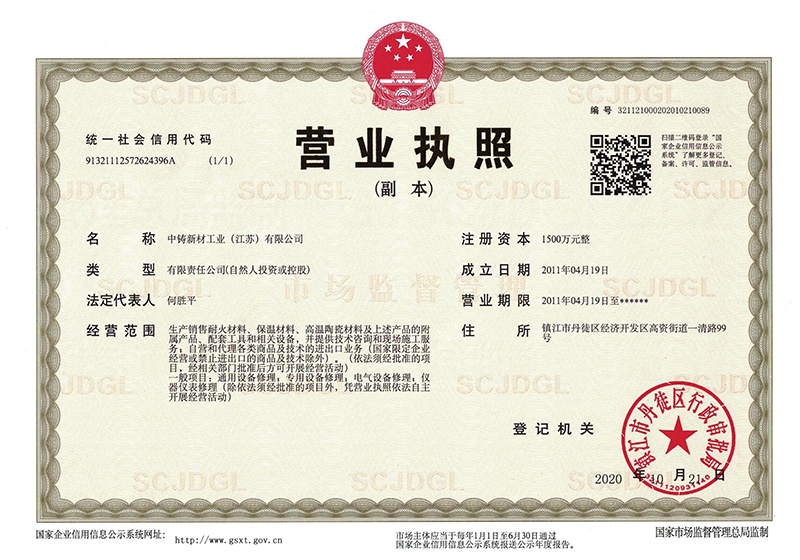News
SINO-FOUNDRY—professional refractory manufacturer
Innovative Uses of Alumina Refractory Materials in Industrial Applications
2025-06-28
Innovative Uses of Alumina Refractory Materials in Industrial Applications Table of Contents 1. Introduction to Alumina Refractory Materials 2. Key Properties of Alumina Refractory Materials 3. Industrial Applications of Alumina Refractory Materials 3.1 Use in Metallurgy 3.2 Role in Ceramics Production 3.3 Applications in Cement Manufacturi
Innovative Uses of Alumina Refractory Materials in Industrial Applications
Table of Contents
- 1. Introduction to Alumina Refractory Materials
- 2. Key Properties of Alumina Refractory Materials
- 3. Industrial Applications of Alumina Refractory Materials
- 3.1 Use in Metallurgy
- 3.2 Role in Ceramics Production
- 3.3 Applications in Cement Manufacturing
- 3.4 Energy Sector Applications
- 4. Innovative Uses of Alumina Refractory Materials
- 5. Benefits of Using Alumina Refractory Materials
- 6. Challenges and Solutions in the Use of Alumina Refractory Materials
- 7. Future Trends in Alumina Refractory Technologies
- 8. Conclusion
- 9. Frequently Asked Questions
1. Introduction to Alumina Refractory Materials
Alumina refractory materials are pivotal in industries that require high-temperature performance. Composed primarily of aluminum oxide, these materials exhibit exceptional thermal stability and resistance to heat, making them suitable for various demanding applications. Their innovative uses extend beyond traditional settings, showcasing their versatility and adaptability in modern industrial landscapes.
2. Key Properties of Alumina Refractory Materials
Alumina refractories are renowned for several key properties that set them apart from other refractory materials:
2.1 High Melting Point
One of the most significant advantages of alumina is its high melting point, which typically exceeds 2000°C. This property makes it ideal for applications in environments where other materials may fail.
2.2 Chemical Resistance
Alumina is highly resistant to corrosive substances, including acids and bases. This chemical stability ensures durability and longevity in various industrial processes.
2.3 Thermal Shock Resistance
Alumina refractories can withstand rapid temperature fluctuations without cracking or degrading. This characteristic is crucial in industries where sudden temperature changes occur frequently.
2.4 Mechanical Strength
These materials possess high mechanical strength, providing structural integrity under extreme conditions, making them suitable for heavy-duty applications.
3. Industrial Applications of Alumina Refractory Materials
Alumina refractory materials find extensive use across various industries due to their exceptional properties. Here, we explore their primary applications:
3.1 Use in Metallurgy
In the metallurgy sector, alumina refractories are essential for linings in furnaces, kilns, and reactors. Their ability to withstand high temperatures aids in the efficient processing of metals, such as steel and aluminum.
3.2 Role in Ceramics Production
Alumina is a critical component in ceramic manufacturing. It enhances the strength and durability of ceramic products, making them suitable for a range of applications, from household items to industrial components.
3.3 Applications in Cement Manufacturing
The cement industry utilizes alumina refractories in rotary kilns, where high temperatures are required for the calcination process. Their thermal stability contributes to improved energy efficiency and reduced operational costs.
3.4 Energy Sector Applications
In the energy sector, alumina refractories are used in power generation facilities, including coal-fired and gas turbine power plants. Their ability to endure harsh conditions ensures reliability and efficiency in energy production.
4. Innovative Uses of Alumina Refractory Materials
Beyond traditional applications, alumina refractory materials are increasingly being utilized in innovative ways that enhance their performance and broaden their scope:
4.1 Alumina in Nanotechnology
Recent advancements in nanotechnology have led to the development of alumina-based nanocomposites. These materials exhibit enhanced properties, such as increased strength and thermal conductivity, making them suitable for cutting-edge applications in electronics and aerospace.
4.2 Composite Materials
Alumina refractories are being combined with other materials to create composites that offer improved performance characteristics. These composites are finding applications in industries like automotive and aerospace, where lightweight and high-strength materials are in demand.
5. Benefits of Using Alumina Refractory Materials
The use of alumina refractory materials comes with a multitude of benefits that enhance operational efficiency and safety:
5.1 Cost-effectiveness
Despite their initial higher costs, alumina refractories prove to be cost-effective in the long run due to their durability and reduced maintenance requirements.
5.2 Enhanced Safety
The inherent properties of alumina, such as chemical resistance and high melting points, contribute to safer operational environments, minimizing the risk of accidents related to material failure.
5.3 Improved Energy Efficiency
Alumina refractories contribute to energy savings by enhancing thermal efficiency, ultimately leading to lower operational costs in high-temperature processes.
6. Challenges and Solutions in the Use of Alumina Refractory Materials
While alumina refractories offer numerous advantages, they are not without challenges. Understanding these challenges and addressing them is vital for maximizing their effectiveness:
6.1 Installation Difficulties
The installation of alumina refractories can be complex due to their weight and fragility. Employing skilled personnel and utilizing advanced installation techniques can mitigate these issues.
6.2 Thermal Expansion Issues
Differential thermal expansion can lead to cracking. To address this, manufacturers are developing alumina refractories with tailored thermal expansion properties.
7. Future Trends in Alumina Refractory Technologies
The future of alumina refractory materials is promising, with ongoing research and development efforts aimed at improving their performance and expanding their applications:
7.1 Sustainable Manufacturing Practices
As industries become more environmentally conscious, the demand for sustainable manufacturing practices is on the rise. Future alumina refractories are likely to focus on utilizing recycled materials and reducing energy consumption during production.
7.2 Smart Refractory Materials
The integration of smart technologies into refractory materials is set to revolutionize the industry. Developing alumina refractories with embedded sensors will enable real-time monitoring of temperature and stress, enhancing safety and performance.
8. Conclusion
Alumina refractory materials are indispensable in numerous industrial applications, thanks to their remarkable properties and innovative uses. As industries evolve, so too does the potential for alumina refractories to enhance efficiency, safety, and sustainability. By embracing advancements in technology and addressing existing challenges, we can unlock even greater possibilities for these essential materials.
9. Frequently Asked Questions
What are the primary uses of alumina refractory materials?
Alumina refractory materials are primarily used in metallurgy, ceramics manufacturing, cement production, and energy sectors.
Why are alumina refractories preferred over other materials?
Their high melting point, chemical resistance, and thermal shock resistance make alumina refractories ideal for high-temperature applications.
How do alumina refractories enhance energy efficiency?
Alumina refractories improve thermal efficiency, leading to lower energy consumption and reduced operational costs.
What challenges do alumina refractories face?
Challenges include installation difficulties and thermal expansion issues, which can be mitigated through skilled labor and advanced material development.
What is the future of alumina refractory technologies?
The future includes sustainable manufacturing practices and the development of smart refractory materials for enhanced monitoring and performance.
Related News
2024-11-05
Zhongzhu New Materials Industry sincerely invites you to participate in the 24th International Forum and Exhibition on Recycled Metals.

WeChat public account

View mobile website
Address : No. 99, Yiqing Road, Gaozi Street, EconomicDevelopment Zone, Dantu District, Zhenjiang City
Fax : +86-511-85683066
E-mail : sales@sfr168.com
Website : https://www.sfr168.com
Copyright©2023 Sino-Foundry Refractory(Jiangsu) Co.,Ltd. Powered by:www.300.cn
Copyright©2023 Sino-Foundry Refractory(Jiangsu) Co.,Ltd.
IPV6 | SEO | Cloud Information



